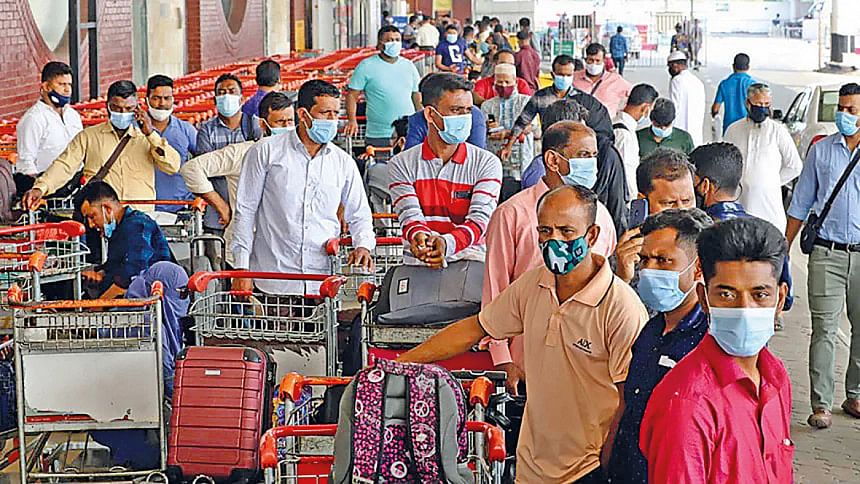Rights of migrant workers

A significant number of Bangladeshi migrant workers are working across various parts of the world, and a large number of them are employed in countries in the Middle East. According to the data of Bureau of Manpower, Employment and Training, approximately 10 million Bangladeshi workers are currently working in the Middle East.
A large number of these migrant workers are subjected to various forms of discrimination and violence. In addition to physical and mental abuse, World Bank reports have highlighted issues such as passport confiscation and non-payment of salaries. As a result, workers are forced to undertake hazardous works and excessive overtime, leading to severe health issues and even deaths.
A study conducted by the Bangladesh Institute of Development Studies in 2019 revealed the dire situation faced by Bangladeshi workers in the Middle East. The study shows that 67% of workers had experienced abuse, 73% did not receive any safety guidelines, and 62% lacked access to healthcare. Additionally, the research found that 24% of workers did not receive their salaries, and 42% experienced delays in payment. It is pertinent to note that the death rate of Bangladeshi migrant workers in the Middle East has increased at an alarming rate compared to that in the previous years.
The Kafala system is one of the significant ways of torturing and exploiting workers. Under this system, workers are unable to change jobs or leave the country without their employer's permission. If the owner's permission is not taken, the workers often face difficulties in finding future employment, including being sent back to their home country. In effect, this system legitimises the oppression of workers.
On the other hand, due to various irregularities in the hiring processes, workers suffer through multiple problems. Agencies and sometimes brokers charge additional fees from workers creating a vicious cycle of debt and thereby forcing workers to work longer hours. More often than not, workers do not receive the promised work environment and salaries as assured by the agencies.
In this regard, it should be highlighted that receiving money through false promises and false assurance of salaries and benefits is punishable offences according to section 31 of the Overseas Employment and Migrants Act, 2013 (OEMA). These offences are punishable with up to five years' imprisonment and one lac BDT as fine.
Furthermore, due to a lack of sufficient information, migrant workers have to face various complications, although according to section 22 of the OEMA, every migrant worker has the right to get information (vide an employment contract) regarding the migration process, work environment, and relevant legal rights. Moreover, according to section 27 of OEMA, any migrant worker who becomes a victim of fraud has the right to get legal assistance.
Apart from filing criminal cases under this Act, aggrieved workers can file civil suits to seek compensation under section 28. Migrant workers also have the right to return to their country according to section 29, and workers have the right to get assistance from the embassy in this regard. The recruitment agency will have to bear the cost of migrant workers returning to the country if negligence or illegal activities on part of the agency are reason underlying the return to home of any migrant workers.
While domestic laws ensure necessary protection for migrant workers, safety concerns persist once the workers are abroad. Furthermore, a significant challenge lies in the lack of an adequate monitoring system and insufficient resources and infrastructure for authorities to supervise the recruitment process and working conditions of these workers.
Moreover, many Bangladeshi workers are undocumented, and hence, they remain deprived of legal protection. In this context, undocumented women workers who migrate as domestic aides are the most vulnerable, and their protection should be addressed on an urgent basis. For the protection of Bangladeshi workers, an overarching infrastructure is needed for the proper implementation of the law. Furthermore, diplomatic relations between Bangladesh and the Middle Eastern countries ought to be strengthened, and in this regard, Bangladeshi overseas missions can play a vital role.
The writer is a student of Law at University of Asia Pacific.

 For all latest news, follow The Daily Star's Google News channel.
For all latest news, follow The Daily Star's Google News channel. 



Comments